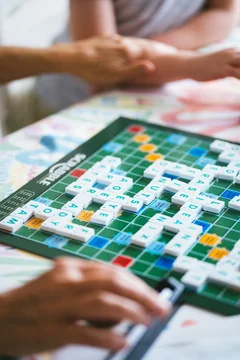Bringing a discovery dispute is a bit of a 3-body problem. At any given time, you've probably got a half dozen complaints with what the other side is doing. When one boils over into a dispute you have to grapple with whether you should just bring all of them—and risk looking unreasonable—or just address the most pressing and risk having to raise serial disputes, which might look even worse. The push and pull can quickly become insoluble.

Luckily, we got an Order from Judge Burke this week that should make this calculus slightly easier going forward.
The defendants in Bardy Diagnostics, Inc. v. Vital Connect, Inc., C.A. No. 22-351-CFC-CJB, D.I. 97 (D. Del. June 11, 2024) (Oral Order) brought the first discovery dispute of the case (by either party) via judge Burkes usual procedure of filing a letter listing the disputes.
The disputes read as the usual humdrum list of custodians not searched and rogs insufficiently answered. The only thing out of the ordinary, is that there were 5 of them included in the letter.
Judge Burke responded to the request for a teleconference the next day with a brief oral order requiring the parties to meet and confer:
The Court has reviewed the parties’ June 11, 2024 letter requesting a disovery dispute teleconference in which Plaintiff is raising 5 separate categories of discovery disputes that it has with Defendant. Five disputes is a lot of disputes to be raising at one time, and the sheer number causes the Court to wonder whether the parties have sufficiently attempted to resolve their disputes before bringing them to the Court. Additionally, with this large of a number of disputes brought at one time, the Court might have to break them up into multiple hearings, which could delay resolution. In light of this, the Court hereby ORDERS that the parties shall have one further meet and confer to see if they can resolve some or all of these disputes before the Court will set a briefing schedule. The meet and confer should include: (1) Delaware counsel for each side; (2) outside counsel involved with the disputes; and (3) the attorney on each side who is leading the trial team. By no later than June 18, 2024, the parties shall file a joint letter of no longer than one page indicating whether the parties have resolved any of the five disputes and whether any of the disputes remain ripe for a discovery dispute hearing.
Id.
I find the order interesting because there was no prior history of arguably vexatious discovery disputes between the parties, so we get a nice bright-line rule: five disputes at once is too many.
My advice, is that if you are considering filing such a letter in future, add in some history about the meet and confers in line with what Judge Burke ordered above, and save yourself a step.
If you enjoyed this post, consider subscribing to receive free e-mail updates about new posts.






